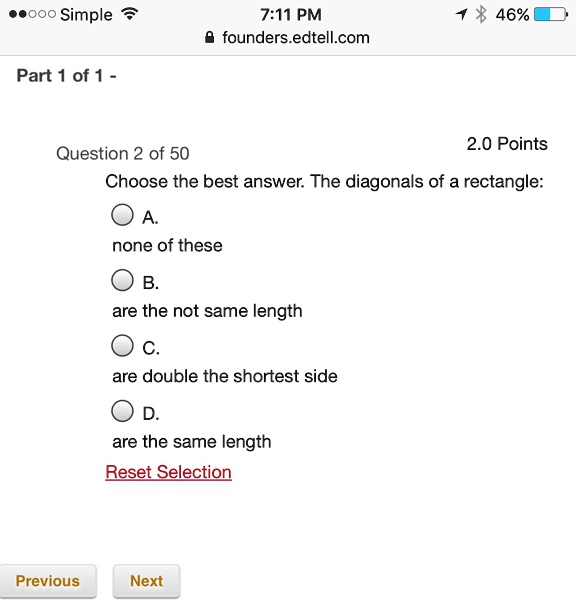Get Quick Answers To Edtell Sakai Questions
Are online education platforms truly delivering on their promise of accessible and efficient learning? The proliferation of online resources, while democratizing knowledge, has also spawned a shadow economy of shortcuts and quick fixes, raising concerns about the true value of online education.
The digital age has undeniably transformed the educational landscape. Platforms like Edtell and Sakai offer students access to a wealth of information, often at their own pace. Yet, this flexibility has also opened the door to a culture of seeking the quickest route to completion, rather than genuine engagement with the material. Students are increasingly turning to online forums and question-and-answer sites, searching for pre-packaged answers instead of grappling with the complexities of the subject matter. This raises a critical question: are students truly learning, or simply becoming adept at navigating the digital maze of online education?
| Platform | Edtell (now PowerSchool Learning) |
| Type | Learning Management System (LMS) |
| Purpose | Provides a platform for online learning, including course materials, assignments, communication tools, and grading. |
| Target Audience | Schools and educational institutions |
| Key Features | Course management, gradebook, communication tools, assessments, personalized learning features. |
| Website | https://www.powerschool.com/solutions/learning/ |
The snippets of online searches reveal a concerning trend. Queries like "edtell sakai answers," "mcdougal littell answers for algebra 2," and "building an atom.docx" suggest a focus on finding ready-made solutions rather than understanding the underlying concepts. The desire to "finish a whole course in just a couple hours" underscores this emphasis on speed over substance. The very structure of online platforms, with their click-through quizzes and automated grading systems, can inadvertently incentivize this behavior. The pressure to achieve a high score often overshadows the deeper learning objectives.
The prevalence of questions like "what is an atom?" and "what particles are atoms composed of?" suggests a reliance on online platforms even for fundamental concepts. While accessibility is a positive aspect of online learning, it shouldn't replace foundational learning experiences. The ease of finding answers online may discourage students from consulting textbooks, engaging in discussions, or conducting independent researchcrucial activities that foster critical thinking and deeper understanding.
The quest for quick answers extends beyond individual courses. The search for ways to expedite summer school courses highlights a broader issue with the perception of online education. The promise of a faster, easier path to academic credit can undermine the value of education itself. When the focus shifts from acquiring knowledge to simply checking boxes, the transformative potential of learning is lost.
The discussion of ion concentration experiments and enthalpy changes, interspersed with requests for answers, further exemplifies the fragmented nature of online learning. The lack of context and the jump from one topic to another suggest a superficial engagement with the material, driven by the need to complete assignments rather than a genuine interest in the subject matter.
The mention of emergency medical services (EMS) resources within the context of online education searches raises another concern: the potential for misinformation. While online communities can be valuable sources of support, they also carry the risk of spreading inaccurate or incomplete information, particularly in fields like healthcare. Reliable and authoritative sources are crucial, especially when dealing with life-saving procedures and medical knowledge.
The struggle to navigate online platforms is also evident in phrases like "click question progress on the side of your screen" and "most of the time it will just load a blank screen." These technical challenges further detract from the learning experience and underscore the need for user-friendly and reliable online learning environments.
The digital revolution has undoubtedly democratized access to education, but it also presents challenges. The allure of quick fixes and shortcuts can undermine the true purpose of learning. Educators, platform developers, and students must work together to foster a culture of genuine engagement and critical thinking in the online learning space. The focus should be on fostering a deep understanding of the subject matter, not just on acquiring quick answers and completing courses in record time. Only then can online education truly fulfill its transformative potential.
The rise of AI-powered tools further complicates the landscape. While AI can personalize learning and provide immediate feedback, it also raises concerns about over-reliance and the potential for diminished critical thinking. Students using AI to generate answers may miss the opportunity to grapple with the material themselves, hindering the development of problem-solving skills and deep understanding.
Furthermore, the fragmented nature of online searches reflects a broader trend towards information snacking. Students are accustomed to consuming information in bite-sized pieces, often lacking the patience or inclination to engage with longer, more complex texts. This can lead to a superficial understanding of complex topics and hinder the development of critical analysis skills.
Ultimately, the future of online education depends on striking a balance between accessibility and rigor. While technology offers powerful tools for learning, it's essential to prioritize genuine engagement, critical thinking, and a deep understanding of the subject matter. The pursuit of knowledge should be a journey of exploration and discovery, not a race to the finish line.


